Table of Contents
Indian ringneck parakeets is a very popular pet bird is not just known for its captivating looks, but its appealing and endearing personality. Perfect for those people who really love hanging out and showering attention, they can really be an excellent companion. These magnificent birds will not bore anyone as they are a good talker and an impressive entertainer.
Now, having to feed your ringneck is really a vital obligation you are expected to show every day, and merely feeding is not enough, it should be, the healthy and right way. Why? This is because the two will unravel how well, and how optimum, their well-being is. You have to be responsible enough to take it seriously; otherwise, you should be its owner. It’s a simple truth.
Feeding them the Healthy Way
Buying high-quality pellets
One of the staples on ringnecks’ diet is a pellet, a high nutritional, with great quality pellet. Pellets are the best option for your bird to have a nutritionally balanced diet as it contains tons of nutrients for it. Remember, high-quality pellets do not have any preservatives, added sugars, artificial coloring, and flavors. Avoid those, as they can do more harm than good.
Incorporate seeds
Another good add-on to your bird’s diet is seeds, and it should make up about ⅙ of its diet. Seeds are great supplemental because it also contains adequate nutrients, and it varies in textures, so your bird has variety when eating.
Add fruits and vegetables
Fruits and vegetables hold an important part in your ringneck’s diet. They both are a great snack and hold a lot of nutritional benefits that further accelerate and better the bird’s well-being. Apples, pumpkin, grapes, carrots, broccoli, parsley, spinach, mango can be offered daily, and you’ll be surprised as to how well your bird will transform. All of these should be served clean and raw, as cooking takes away its vital nutrients.
They can be served in any way, maybe chopped, shredded, diced, sliced, it can also be puréed or whole. You are to try multiple ways, so your parakeet will know what it likes best. There are fruits and vegetables you can never let your bird eat as they can be toxic. These are avocado pits, apple seeds, garlic, onion, mushroom, beans, rhubarb as well as the leaves and stems of tomatoes.
Hard-boiled eggs for protein
Eggs are a good source of protein for your parakeet. This adds a little variety and is unfailing to provide nutritional benefits, which is always a lovely thing. It is essential for having strong feathers; it enhances muscle tone, provides healthy energy levels and just overall enhances both mental and physical health
Feeding them the Right Way
Keep it fresh and full of variety
Your ringneck parakeet should have different options to feast in every day. A general rule of thumb is that you should have pellets and seeds every day. Fruits and vegetables should be fed to it every second day, or daily as well, and eggs should be offered once a week. Always offer fresh food, if they left food untouched for more than three hours (fruits, vegetables, and egg), do not force them to eat it as it may have gone rotten already.
Use a suitable feeding equipment
Your bird must have access to its food, whenever it needs to. Birds are quick to get sick if they do not eat even for less than 24 hours, thus the need for its accessibility. The container should not be too deep, and a water dish should be placed for efficiency as well.
Prevent obesity
Ringneck parakeets need ample cage space in captivity because they are to exercise. Your very own must have it as well, and you are to encourage it to get physical stimulation. Obesity can result in a series of health problems. The two most common signs of obesity are streamlined appearance and becoming lethargic and if you see this too and suspect they might be overeating and passive, a veterinarian consult is a must.
Always be proactive in watching out for sickness
The consistency of your bird’s stool says a lot about their health. If he is getting too much fresh food, it becomes loose and watery, and in that case, you should decrease its intake. Their feces must be firm and dark brown, or greenish, and their urine must be clear. If the two optimum conditions are not present, consider veterinarian consultation to aid in healing.
Conclusion
Feeding one of these magnificent birds sure is bearable, right? Now, you are now equipped with the right feeding knowledge that, in turn, makes you eligible for finally saying yes to owning one. We guarantee you, just following this simple guide and showing up to your bird every day, will set you up for successful companionship with it. A happy bird equates to a rightful and responsible owner, always remember that. Advance, happy ringneck parakeet pet parenting!

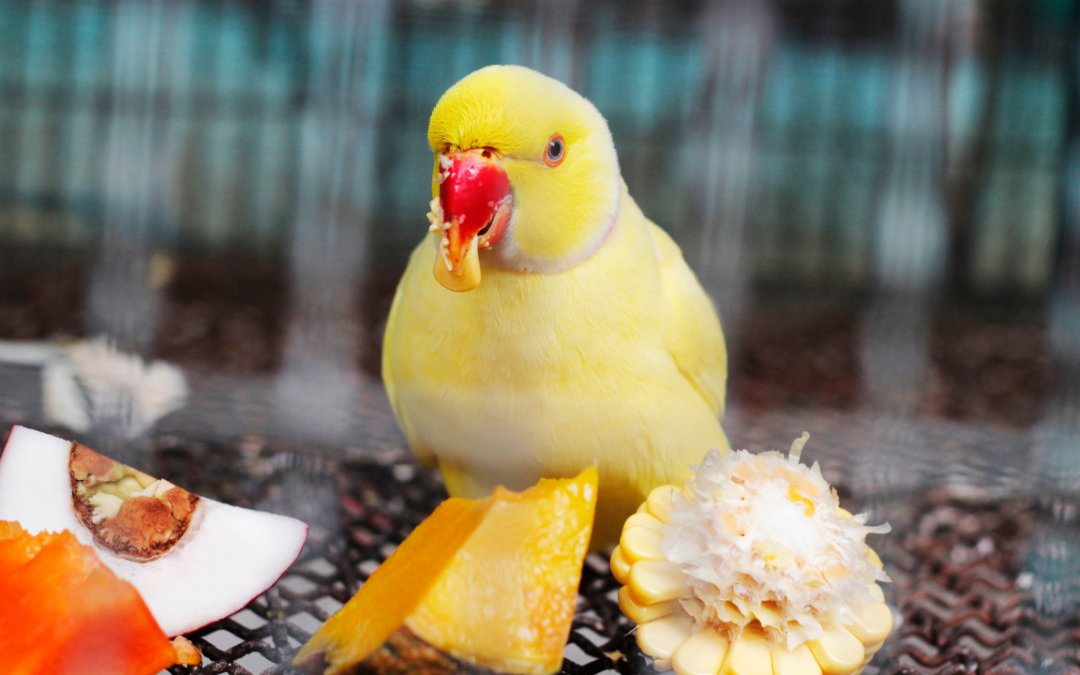
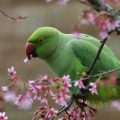
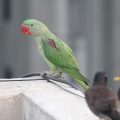
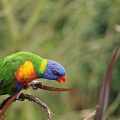
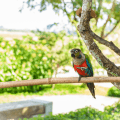
 Author and long-time animal lover. Sharing knowledge on pet care through experience and the written word.
Author and long-time animal lover. Sharing knowledge on pet care through experience and the written word.